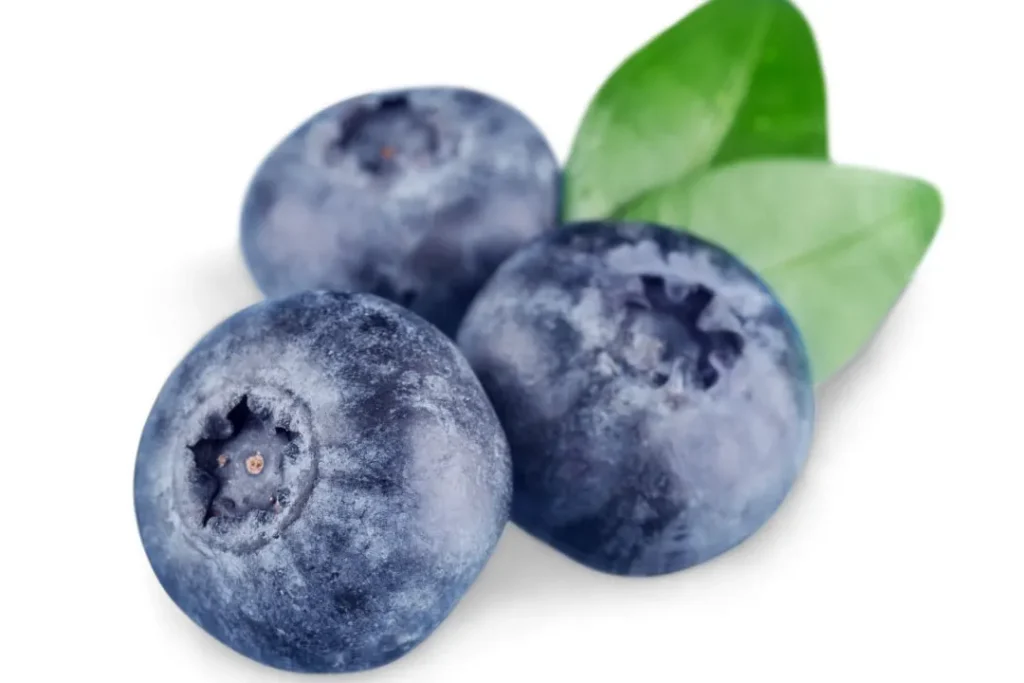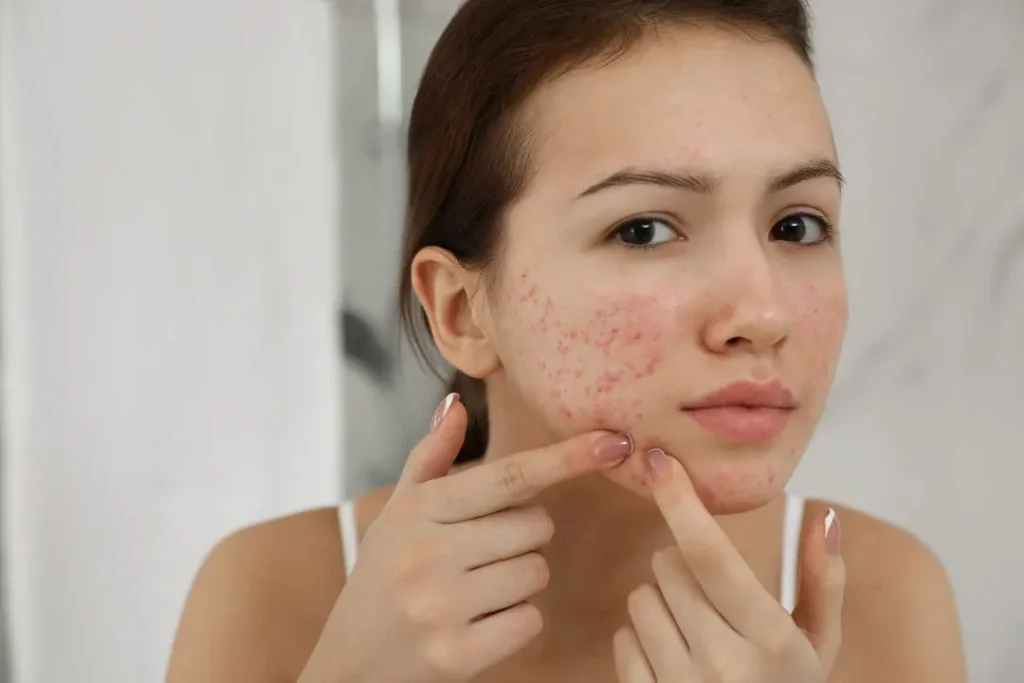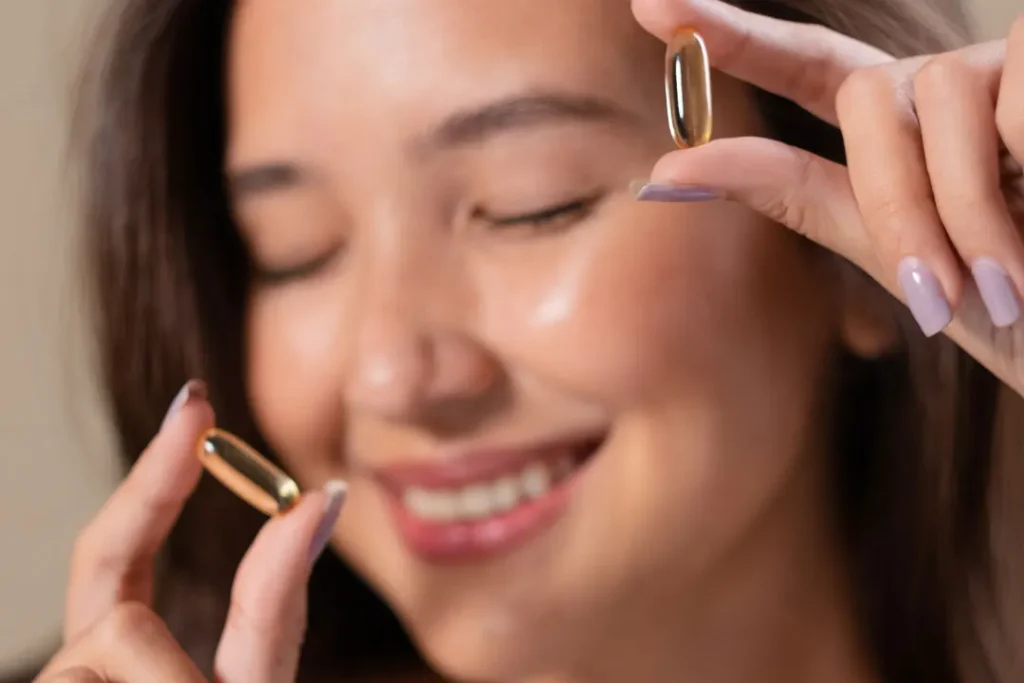Resveratrol is a powerful antioxidant with anti-aging properties that affect our skin in amazing ways. If you’re looking for a radiant, healthy glow, check out the resveratrol benefits for skin that are sure to transform your beauty routine.
The quest for skincare products that work is like scrolling Tinder – full of false promises, questionable side effects, and disappointing results. Maybe the next one, you tell yourself.
All the while, you’ve moisturized your face to the point you could survive a California drought and possibly the following wildfires.
Ever the optimist, you determine to keep searching for the elixir that will transform you into the radiant god or goddess you know you are. Meanwhile, your collection of creams and serums could rival the inventory of a small pharmacy, and your medicine cabinet has become a veritable graveyard of skincare hopes and dreams.
If you relate to this struggle, keep reading for what is possible when you stop relying on pretty jars of empty advertising and begin to educate yourself on the science behind skincare products that work. We’ll highlight resveratrol, a superstar skincare ingredient, describe its benefits, and explain the science behind why it works.
You May Also Like:
Hyaluronic Acid Face Cream: The Key to Younger-Looking Skin
5 Great Reasons to Try a Skincare Product with Heparan Sulfate Analog (HSA)
Boost Your Beauty with 3 Big Resveratrol Benefits for Skin is an original (Skin&BeautyJournal) article.
Resveratrol benefits for skin:
In vino veritas
Resveratrol is a natural compound found predominantly in the skin of red grapes, blueberries, and some other plants (that, frankly, aren’t as fun or delicious as red wine). Numerous studies of the promising ingredient have demonstrated a wide range of benefits for skin health and overall well-being. From its anti-aging and photoprotective effects on the skin to its potential for mood regulation and even reducing cancers, resveratrol has emerged as a promising compound with the sort of immense potential that may rival your next unscripted meet-cute.
Of course, reasonable expectations are as essential in skincare as in dating. Resveratrol’s potential is real and expansive, but it also has limitations. One of which is its bioavailability. The bioavailability of resveratrol is low, meaning that the body may absorb and use only a tiny portion of the ingested amount. Resveratrol is often consumed in supplement form. The optimal dosage for specific health conditions is still somewhat uncertain. Additionally, the long-term effects of high-dose resveratrol supplementation are not well understood.
Now on to the good stuff!

Resveratrol benefits for skin:
What does it have that the others don’t?
Resveratrol is a polyphenol powerhouse. Scientists in the International Journal of Molecular Sciences say that polyphenols help protect the skin against free radicals – the unstable molecules that damage our skin and contribute to aging and skin diseases. By neutralizing pro-inflammatory cytokines, polyphenols reduce oxidative stress associated with fine lines and wrinkles in the skin. Additionally, polyphenols have anti-inflammatory properties that have been shown to soothe and calm irritated skin afflicted with eczema, rosacea, and even acne.

Resveratrol benefits for skin:
What else do polyphenols do?
Overachievers that they are, polyphenols have been studied for their photoprotective properties, with results published in the journal Experimental Dermatology suggesting they shield the skin from the harmful effects of ultraviolet (UV) radiation, including sunburn and the DNA damage associated with premature aging caused by sun exposure. It is still crucial to wear sunscreen and to limit UV exposure during peak hours of the day, but it is always nice to have added backup.
Boost Your Beauty with 3 Big Resveratrol Benefits for Skin is the (Skin&BeautyJournal) report.

Resveratrol benefits for skin:
Firm it up!
Like dating apps, the questionable claims of many skincare products can leave your hopes dragging and your skin sagging. However, a study published in the Natural Medicine Journal found that resveratrol has the potential to enhance collagen production and inhibit the degradation of elastin fibers. In other words, resveratrol can reduce the appearance of wrinkles and improve skin elasticity. So, if you don’t want to rely on the empty promise of expensive creams in pretty jars to tackle your sagging jawline, look for a product with resveratrol. Additionally, look for a reputable vendor and manufacturer that uses quality ingredients.

Resveratrol benefits for skin:
Finding a quality hookup
Boomers Forever Young is a reputable vendor with a quality supplement called Resveratrol Advanced Blend. Resveratrol Advanced Blend doesn’t stop at resveratrol-rich grapeseed extract. The product also contains a transformative blend of moringa oleifera, known for its richness in essential vitamins like C and A, calcium, protein, potassium, and iron. As if that isn’t an army already, there’s also acai, which contains proven immunotherapeutic properties that fight infection by activating the body’s immune system.
If you aren’t among the majority who see results using the product, Boomers Forever Young will happily refund your purchase price. If only there were such guarantees in the dating world.
The company’s president and co-founder, Bob Gilpatrick, stresses his company’s commitment to educating the public on nutrition via the company’s nutrition podcast and YouTube channel. The content is free to the public, and viewers and listeners are encouraged to call the company with any questions regarding the information presented or nutrition in general. “We’re more than just a nutrition company,” he explains. “We’re teaching people what the state of the art is in the world of nutrition.”
Resveratrol benefits for aging:
Beauty is more than skin deep
Irrespective of attracting the outside gaze, we all want to look and feel our best. We all understand the importance of good nutrition and proper self-care in our routines. So, whether you’re looking to improve any existing problems with your skin or just trying to get a running start in preventing or slowing future damage, resveratrol is a powerful supplement to include in your skincare routine and overall health and wellness regimen.
Further reading
Research Gate: Health Benefits of Resveratrol: Evidence from Clinical Studies
National Library of Medicine: Effects and Mechanisms of Resveratrol on Aging and Age-Related Diseases
National Library of Medicine: Resveratrol: A Double-Edged Sword in Health Benefits, by Bahare Salehi et al.
Important Note: The information contained in this article (Boost Your Beauty with 3 Big Resveratrol Benefits for Skin) is for general informational purposes only and should not be construed as health or medical advice, nor is it intended to diagnose, prevent, treat, or cure any disease or health condition. Before embarking on any diet, fitness regimen, or program of nutritional supplementation, it is advisable to consult your health care professional to determine its safety and probable efficacy in terms of your individual state of health.
Regarding Nutritional Supplements or Other Non-Prescription Health Products: If any nutritional supplements or other non-prescription health products are mentioned in the foregoing article, any claims or statements made about them have not been evaluated by the U.S. Food and Drug Administration, and such nutritional supplements or other health products are not intended to diagnose, treat, cure, or prevent any disease.